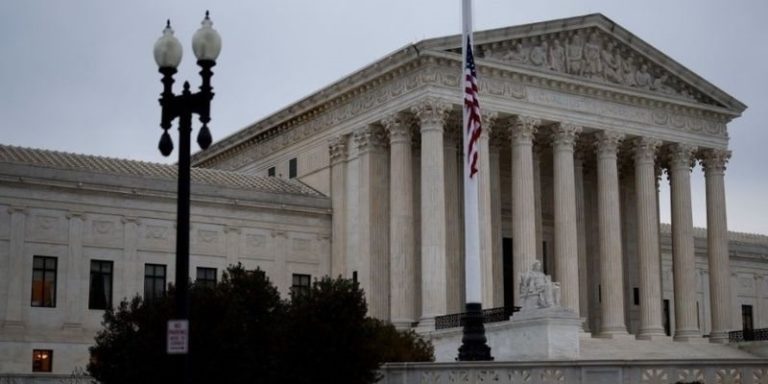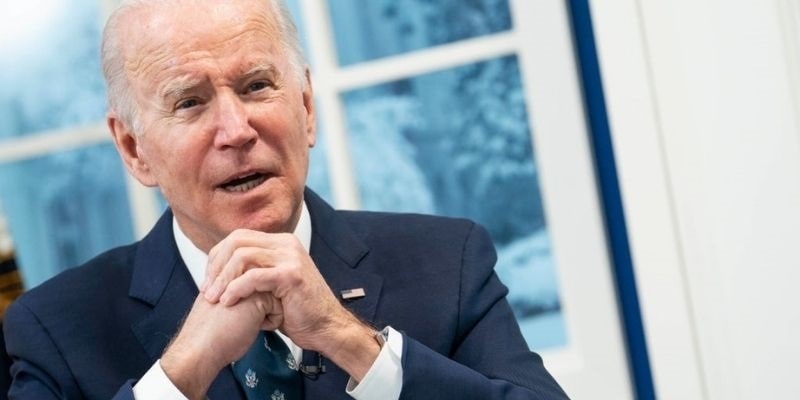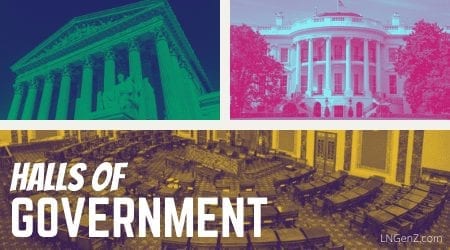Supreme Court Blocks Biden’s Business Vaccine Mandate
Did the president overstep his limits?
By: GenZ Staff | January 14, 2022 | 807 Words

(Photo by Ting Shen/Xinhua via Getty Images)
As part of his plan to combat the COVID-19 pandemic, President Joe Biden last year ordered some rules on vaccination – but the Supreme Court has stopped one of them from taking effect.
In September 2021, the president declared that businesses with 100 or more employees should require their workers to get vaccinated against the virus. Workers who didn’t get the vaccine would have to wear a mask every workday and get tested each week. If the employees chose not to comply, the companies would be forced to fire them. The mandate was thought to cover around 80 million Americans. As soon as it was announced, the order became very controversial.
“The time for waiting is over,” President Biden said. “This is not about freedom or personal choice. It’s about protecting yourself and those around you … My job as president is to protect all Americans.” He told the Occupational Safety and Health Administration (OSHA) to create the new workplace regulation.
Some people applauded Biden for trying to limit the spread of COVID. However, others said the president has no power to order such rules for privately-owned businesses. For example, Arizona Governor Doug Ducey called the decree “big government overreach.” Several lawsuits were launched to challenge the rule and stop it from taking effect.
So, how much power does the U.S. president have over businesses?
The Executive Grabs Too Much Power?
The United States government has three branches – the legislative (Congress), the executive (the president and his agencies), and the judicial (the courts). Each branch is meant to limit the power of the others – so if someone thinks the president is doing something outside of his power, they can challenge it in the courts. That’s just what happened with the OSHA vaccine rule. Several cases were brought to the courts, but different judges disagreed on whether the rule should be allowed or not.
The cases challenging this mandate and others are still being debated in the lower courts, but the Supreme Court heard an emergency request to prevent the OSHA mandate being enforced until the issue is worked out. In a 6-3 vote, the justices on the Court agreed to block the regulation for now.
The six judges said the mandate is likely outside the power of the executive branch, because OSHA only has the authority to “set workplace safety standards, not broad public health measures.” The Court said the federal government must:
“[A]ct consistently with the Constitution’s separation of powers. And when it comes to that obligation, this Court has established at least one firm rule: ‘We expect Congress to speak clearly’ if it wishes to assign to an executive agency decisions ‘of vast economic and political significance.’”

Joe Biden (Photo by Sarah Silbiger/Getty Images)
It is still possible that the other courts could later say the OSHA mandate is constitutional, but after this ruling, it is extremely unlikely. That means the OSHA mandate is basically dead unless Congress passes a new law granting more authority to the executive branch.
President Biden commented on the decision. “I am disappointed that the Supreme Court has chosen to block common-sense life-saving requirements for employees at large businesses that were grounded squarely in both science and the law,” he responded to the ruling. “It is now up to States and individual employers to determine whether to make their workplaces as safe as possible for employees …”
On the other hand, some businesses said they were relieved. Wendy Block, who works for the Michigan Chamber of Commerce, said:
“This ruling is a huge sigh of relief for many Michigan businesses that were on edge about this unprecedented attack on employer rights and still very uncertain about how they would or could implement the sweeping vaccine mandate.”
How About Other Mandates?
 Just because the mandate for businesses was blocked doesn’t mean all President Biden’s vaccine rules will be. His plan also covered:
Just because the mandate for businesses was blocked doesn’t mean all President Biden’s vaccine rules will be. His plan also covered:
- Federal workers and people who have contracts to work with the government.
- Health care workers at government-supported services.
- Staff at certain schools.
The rule for health care workers was also challenged, but the Supreme Court did not block that mandate. Instead, they accepted that health services that get government funding can require their employees to get vaccinated, at least for now. If a lower court rules that this mandate is also outside the president’s power, then it would also be blocked until the Supreme Court overturned that decision. And there’s no guarantee that it would.
In the end, these cases are about how much power the federal government – and especially the executive branch – has over American society. As the nation decides on the right balance of power, the COVID pandemic has provided a chance to see the system of checks and balances in action.
















